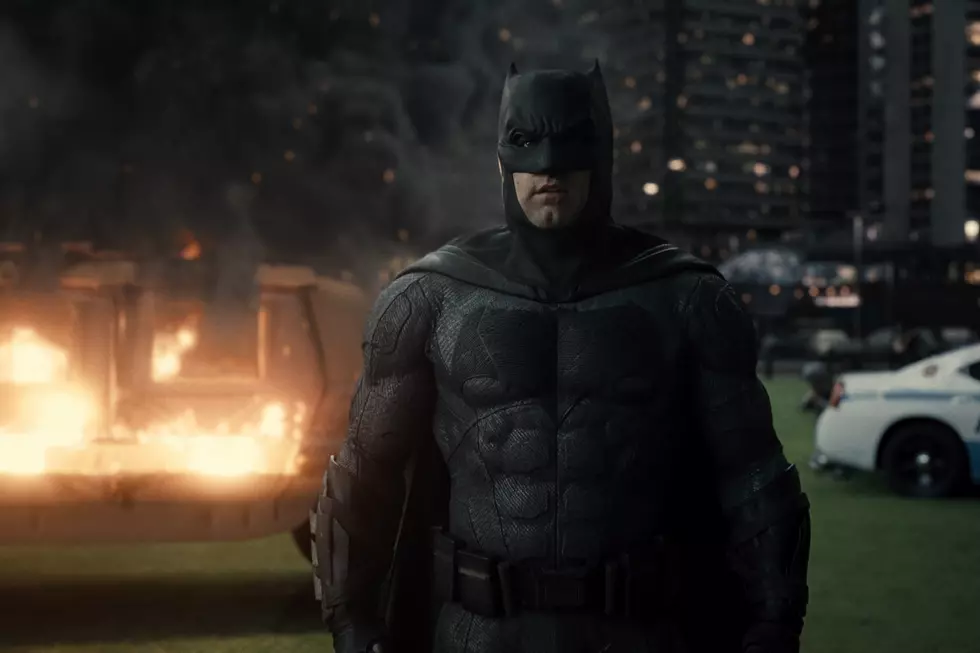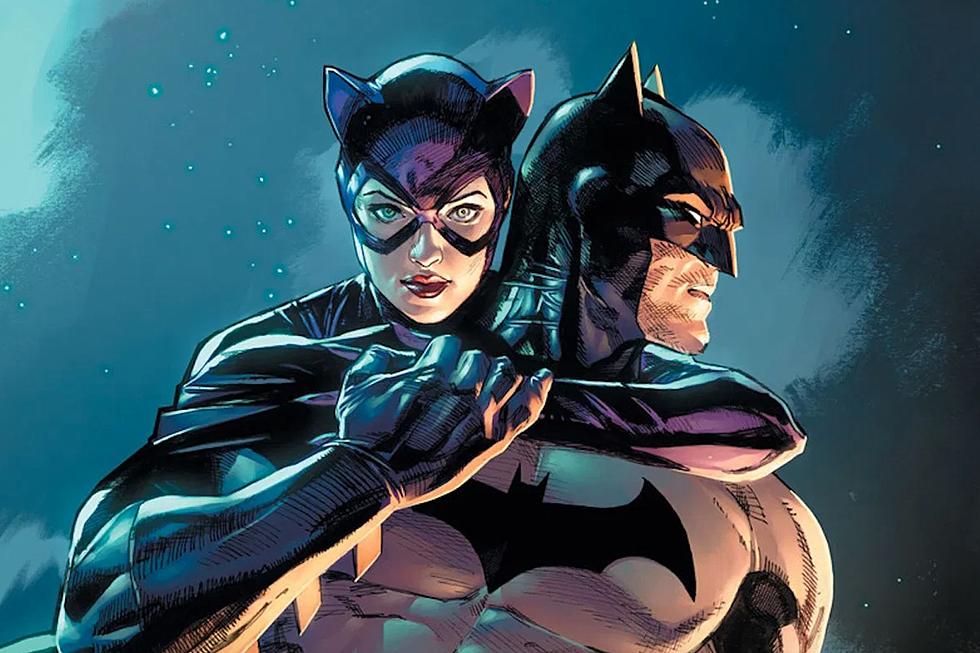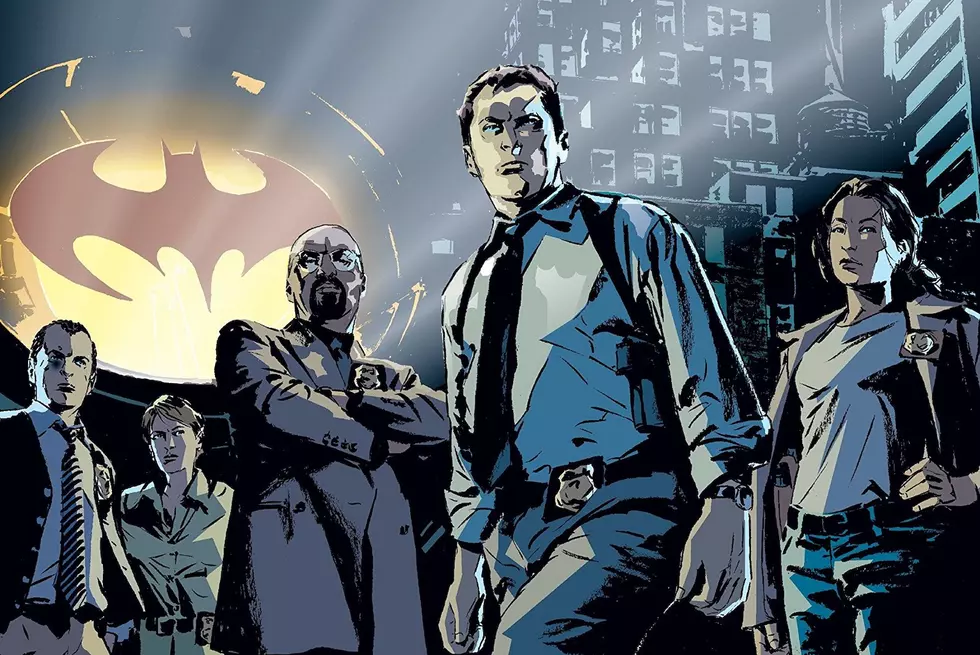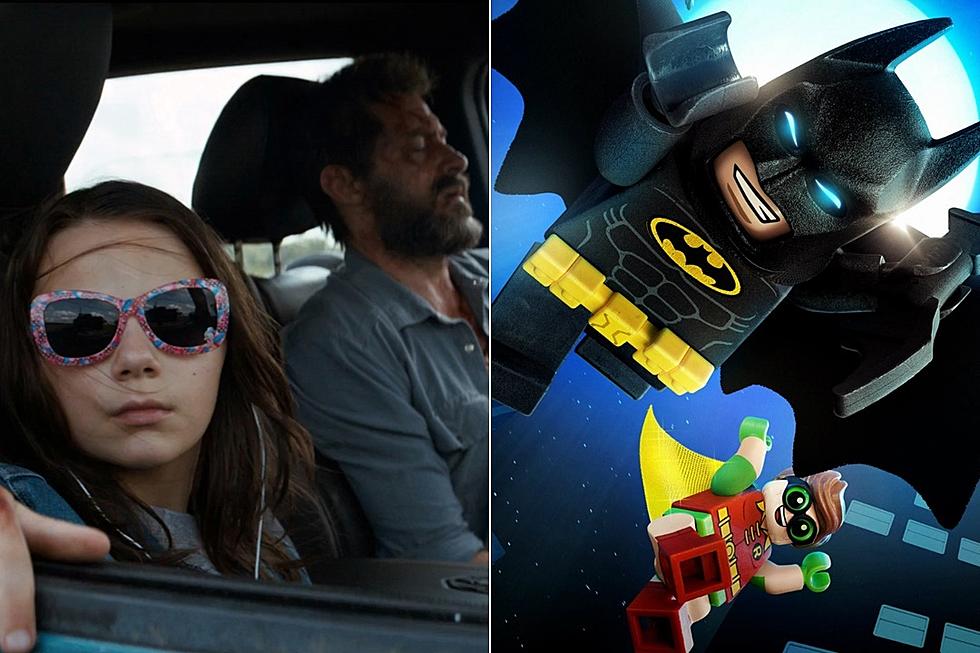
Ask Chris #147: The Best Robin Ever
Over a lifetime of reading comics, Senior Writer Chris Sims has developed an inexhaustible arsenal of facts and opinions. That's why, each and every week, we turn to you to put his comics culture knowledge to the test as he responds to your reader questions!

Q: Who is or was the best Robin? What is the Best Robin moment in Comic Book History? -- @danceformyhorse
A: Here's a little tidbit that probably won't shock anybody: I think about the Robins a lot. When you spend around 60% of your waking hours thinking about Batman, it's sort of inevitable that you'll eventually get around to his sidekicks, and there's a lot there to think about. There are a ton of complexities and little bits of subtext with what they bring out of Batman, but in this case, the answer strikes me as a pretty obvious one.
The best Robin is, beyond a shadow of a doubt, Tim Drake. Deal with it, haters. Don't get me wrong: It's not that I don't like the other Robins at all. I think they're all really great characters who bring something interesting to the larger mythology of Batman, and I'd even go so far as to say that they're all necessary for building the version of Batman that we have now. That said, when you look at each of those characters and how they function in their role as Batman's sidekick -- or, to be a little less dismissive, his partner in crime-fighting -- Tim's rank at the top becomes pretty self-evident.
Don't get me wrong: It's not that I don't like the other Robins at all. I think they're all really great characters who bring something interesting to the larger mythology of Batman, and I'd even go so far as to say that they're all necessary for building the version of Batman that we have now. That said, when you look at each of those characters and how they function in their role as Batman's sidekick -- or, to be a little less dismissive, his partner in crime-fighting -- Tim's rank at the top becomes pretty self-evident.
For one thing, he's the only one of the Robins who's not, on some level, in it for themselves. All of the others are motivated by very personal reasons. Dick Grayson essentially has the same defining tragedy that Bruce Wayne does, in that he sees his parents murdered in front of him. The only real difference is that it happens in Haley's Circus instead of Crime Alley, and even that's really just a convenient reason for him to already have the gymnastic ability to swing around Gotham City without having to go tromping around the world for 20 years like Bruce did. He's ready to go from the moment he's introduced, complete with the same sort of training and, more importantly, the same sort of motivation that Batman himself has.
The thing is, Dick Grayson's major value as a character doesn't come from his time as Robin -- at least, not in the grand, ongoing evolution of Batman that DC's been cooking up since 1939. He only truly becomes a great character when we see how he grows up. I've talked about this before, but the short version is that he's Batman's first and greatest triumph against Crime. He's proof that the idea of Batman works, because a kid who's put into the exact same situation that Bruce Wayne was when his parents died doesn't have to go through it alone. There's someone there for him who can help him and provide him with the closure that Bruce never had, and that makes a huge difference in his life. If Batman didn't already exist, Dick Grayson would've become Batman, but because there is already that figure in place, he becomes something different.
Batman builds himself a family over his career, but he often does so at the expense of Bruce Wayne's personal life. Even if he's not fully consumed with the pursuit of justice, he's never going to settle down and get married, because being Batman comes before everything else in his life. Dick, on the other hand, is consistently portrayed as a far more easygoing, well-liked guy who's almost always surrounded by friends and teammates. He's the dude that everyone in the DC Universe gets along with and who almost got married to an alien supermodel. But while all of that makes him a great character, and makes his relationship with Batman a pretty incredible dynamic (get it), it doesn't really kick in until after he becomes Nightwing and shows how different he is from his mentor.
If Grayson represents Batman's greatest triumph, then Jason Todd -- or at least, the Post-Crisis Jason Todd, since the original version was just Grayson with palette-swapped hair -- represents his greatest failure. Frank Miller had set up that Something Terrible happened to Jason at some point on the road to Dark Knight Returns, and since late '80s Batman comics were trying so hard to be DKR that it's kind of embarrassing to look back on them (see also: late '90s DC Comics and Kingdom Come), that idea was folded into the main line books. Unlike his squeaky-clean predecessor, Jason was cast as a Troubled Teen in the pages of Batman, someone who'd had a rough life with plenty of tragedies and had a lot of anger at the world, even though it seems like nobody bothered to tell Mike W. Barr, who was writing classic, relatively lighthearted adventures with a wide-eyed, pun-filled "Jay" Todd over in Detective.
Either way, It was an interesting setup, with Batman clearly wanting to recreate the success (and familial relationship) that he had with Grayson, and Jason wanting to vent his anger on the world in a way that would be, if not righteous, at least more constructive than the life of crime he'd been heading toward on his own.
In the run up to Death in the Family, Jason was shown to be a much more ruthless and pragmatic character than even Batman. Batman #424, one of the very first comics I ever read, features Batman and Robin going up against the drug-dealing son of a diplomat / '80s action movie coke dealer stereotype called Felipe. After Felipe beats his girlfriend so badly that she kills herself (pretty heavy stuff for a comic I read when I was six), Batman's solution is to work within the law, essentially having him deported back home in shame. If that sounds a little soft compared to Batman's usual standards, it is -- conspicuously so, as it's very obviously done more for the sake of contrasting it with Jason's solution: straight up kicking that dude off a building to his death:
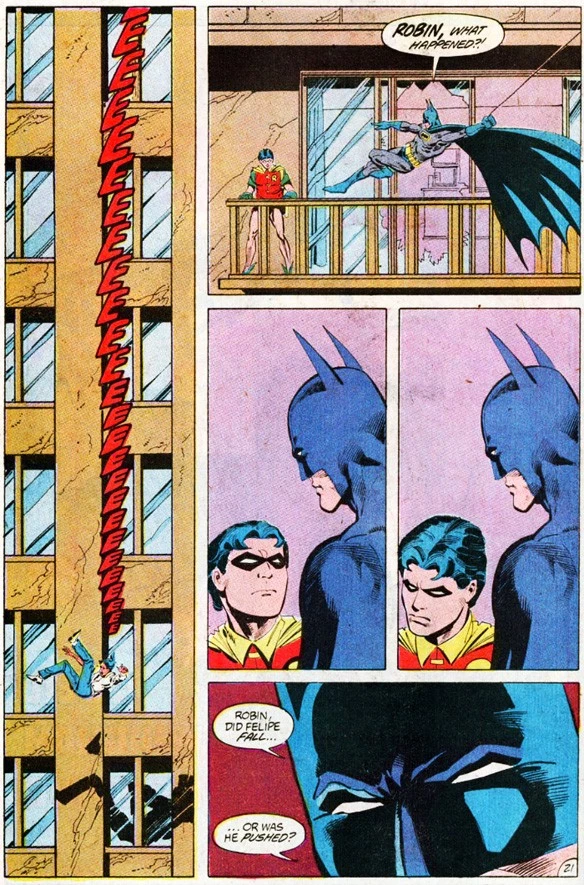
Death in the Family might've made it official, but that right there is the moment that readers should've known Jason's career as Robin was over. It's not that he's wrong or right -- Jim Starlin and Mark Bright cast Felipe as an irredeemable and untouchable scumbag -- it's that he doesn't work in Batman's world.
In a lot of ways, that version of Jason Todd was the voice of the sort of reader who always wants to know why Batman doesn't just go ahead and do us all a favor by killing the Joker, something that was (painfully) literalized when Judd Winick dragged him out of the grave 20 years later to put that question to Batman. The answer is simple: Batman doesn't kill, period. Either you get it or you don't, and Jason Todd didn't get it so he had to go. Even if that phone-in vote on whether to kill him had gone the other way, he was done as Robin, but that contrast, and Batman's eventual rejection of simple revenge in favor of his established morality is a really interesting part of those characters. It's the great Pyrrhic victory in his ongoing battle against the Joker.
Skipping ahead a bit, the other Robins are similarly self-motivated. That one kid who was Robin for a cup of coffee, what's her name? Blonde hair, amazing costume. I want to say... Stacy? Her brief tenure as Robin was all about proving her worth, to the point where even her eventual "death" (usually best left forgotten) came as a result of wanting to show that she was useful in her role. The same goes for Damian Wayne, a character who was entirely built around a desire to prove himself. First, it's just to show his worth to his father by replacing Robin and becoming the favorite child, a pretty immature, bratty sort of motivation that's made threatening because he's a spoiled brat trained by the deadliest assassins in the world.
And it's worth noting that Batman does the absolute wrong thing when dealing with him:
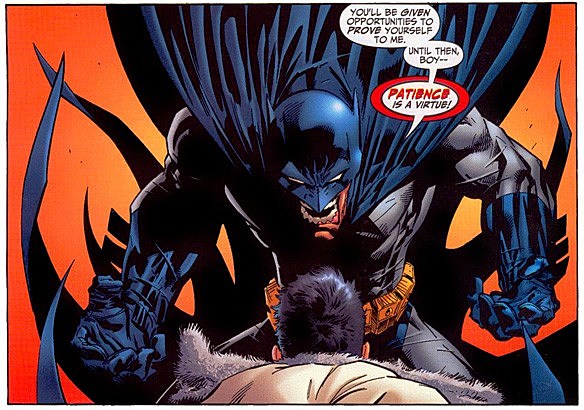
He shouts and postures and tries to intimidate and terrify him into submission. In other words, Bruce treats Damian like a villain, because that's the only way he knows how to deal with him. Genes or no, he's a product of the League of Assassins, so when his first attempts to show him the wonders of the Batcave and introduce him to the family fall completely flat -- the same things that had awed Dick, Jason, Stephanie, Tim, Barbara and everyone else who'd been down there -- he goes back to what usually works. And it fails miserably. Seriously, two pages after all this shouting, Damian kicks the crap out of Robin and then cuts off a dude's head. That's about as wrong as parenting can go.
It's only when Bruce is out of the way and Grayson takes over as Damian's mentor that Damian evolves, and again, we see the success of that first Batman and Robin relationship. We know how Bruce dealt with someone who was in the same situation that he was as a child and helped them grow, now we get to see how Dick deals with someone who's like a young Bruce. It's only when that relationship comes into play that Damian's desires go beyond proving worthiness as a successor to his father and more to the higher cause of justice.
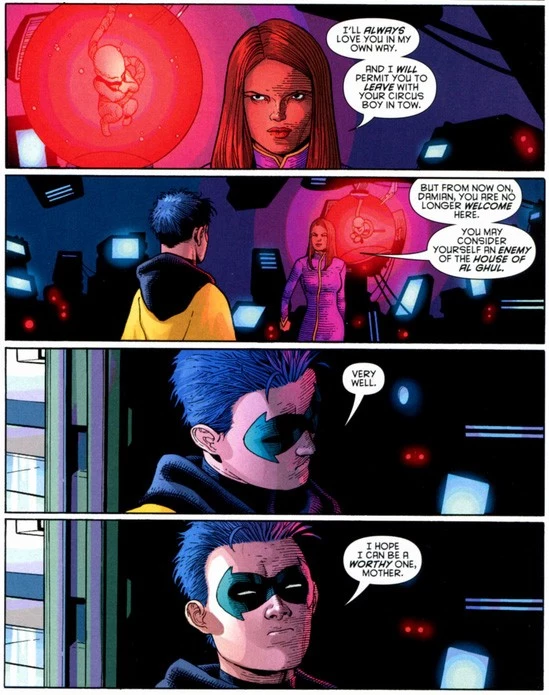
That's the influence of Dick Grayson, The Batman Who's Good With People, and as a result, Damian's not really ever Bruce's sidekick in the way that the others are. He's Dick Grayson's Robin, which makes that scene in Batman Inc. #8 -- spoiler warning! -- so great, when they have their last great team-up with an artistic nod back to their first adventure together:

Incidentally, in terms of costumes, Damian beats everyone else hands down, if only because of his lace-up wrestling boots.
Now, at long last, back to Tim Drake.
Tim's not in it for himself, and a lot of that comes from the simple fact that he doesn't need to be. When he first appears, he doesn't have a tragedy that defines his past and drives him to seek vengeance. In fact, he has the exact opposite: It's not really exaggerating to say that he's the single most privileged, well-adjusted character in the entire Batman mythos. He's rich enough to live more-or-less next door to Wayne Manor, he has two loving (and living) parents. The one thing that drives him is that he's a kid who loves Batman.
In that respect, he's as much of a stand-in for the fans as Jason Todd was for that certain segment of readers, but on a different level. He's a guy who pays attention to Batman and how he works, almost to the point that trounces the suspension of disbelief in a world where Batman was still supposed to be thought of as a possible urban legend (despite, you know, being a member of the Justice League). In all honesty, he'd make a lot more sense if we saw a long box of dog-eared Batman comics in his bedroom.
Either way, he's studied Batman enough to the point where he realizes what we have (or what we should've, anyway), which is that Batman's never been a solo act. Even if it's not Robin, even if it's just Alfred, or Jim Gordon, or Lucius Fox, or Superman, Batman is someone who has people in his life that help him in various respects. Tim Drake realizes this, and, knowing that Robin got crowbar'd to death, he steps up to fill that role.
His appearances spin out of a long game that started with Death in the Family, but it's not a matter of co-opting someone else's tragedy. He becomes Robin because of a desire to help Batman, and helping Batman is what Robin does. It's purely altruistic, and because of that, he's dedicated to being Robin and filling that role in a way that other characters aren't. He's driven, but not by tragedy -- he's just really nice, and he's driven because helping people is the right thing to do. It's a very bright, unambiguous motivation in a franchise that's often defined by darkness and brooding and murderous psychopaths, but again: That's what Robin does.
If you go back to his debut as Robin, Alan Grant and Norm Breyfogle lay this out in the most literal, obvious way possible, contrasting two panels. The first is Bruce Wayne, face covered in shadow, talking about how he watched his parents die in an alley. The second is Robin cheerfully thinking about how f**king awesome it is to swing around on a grappling hook:

It's a great scene, and it really does a lot to illustrate how those characters were meant to balance each other.
Of course, as time went on, that great concept went through some pretty rough times. Tim was orphaned one parent at a time, including having his father offed by Captain Boomering in what is, amazingly, not the most glaring example of missing-the-f**king-point that you can find in the pages of Identity Crisis. More recently, the "New 52" reboot issued an edict that Tim Drake had never been Robin at all for reasons that are probably explained in a bunch of Teen Titans comics that I didn't read, shuffling him off to be tied with Carrie Kelly for Best Robin That I Guess Was Never "Actually" Robin. Comics!
As for my favorite Robin moment, man, that is tough. There are so many good ones to pick. Since I already brought up Carrie Kelly, that entire sequence from when she jumps on the Mutant Leader and then her response when Batman asks her name is about as perfect as comics get:

Outside of comics, I'd be lying if I said that "Robin's Reckoning" from Batman: The Animated Series wasn't one of the best portrayals of those two characters in any medium.
For Tim Drake, though, my favorite example is relatively recent, involving Bruce Wayne's return from THE OMEGA SANCTION! THE DEATH THAT IS LIFE! in The Return of Bruce Wayne #6. While Damian may have been Dick Grayson's partner, Tim Drake never stopped being Bruce Wayne's, and when Bruce gets turned into a time-spanning weapon against life, he ends up being the only one who can talk him down:

In the biggest, goofiest, weirdest, most comic booky terms, that's what their relationship is. When everything is at its worst, Batman's there to stop it. When everything's at its worst for Batman, Robin's there to help him.
That's all we have for this week, but if you've got a question you'd like to see Chris tackle in a future column, just send it to @theisb on Twitter with the hashtag #AskChris, or send an email to chris@comicsalliance.com with [Ask Chris] in the subject line!
More From ComicsAlliance

